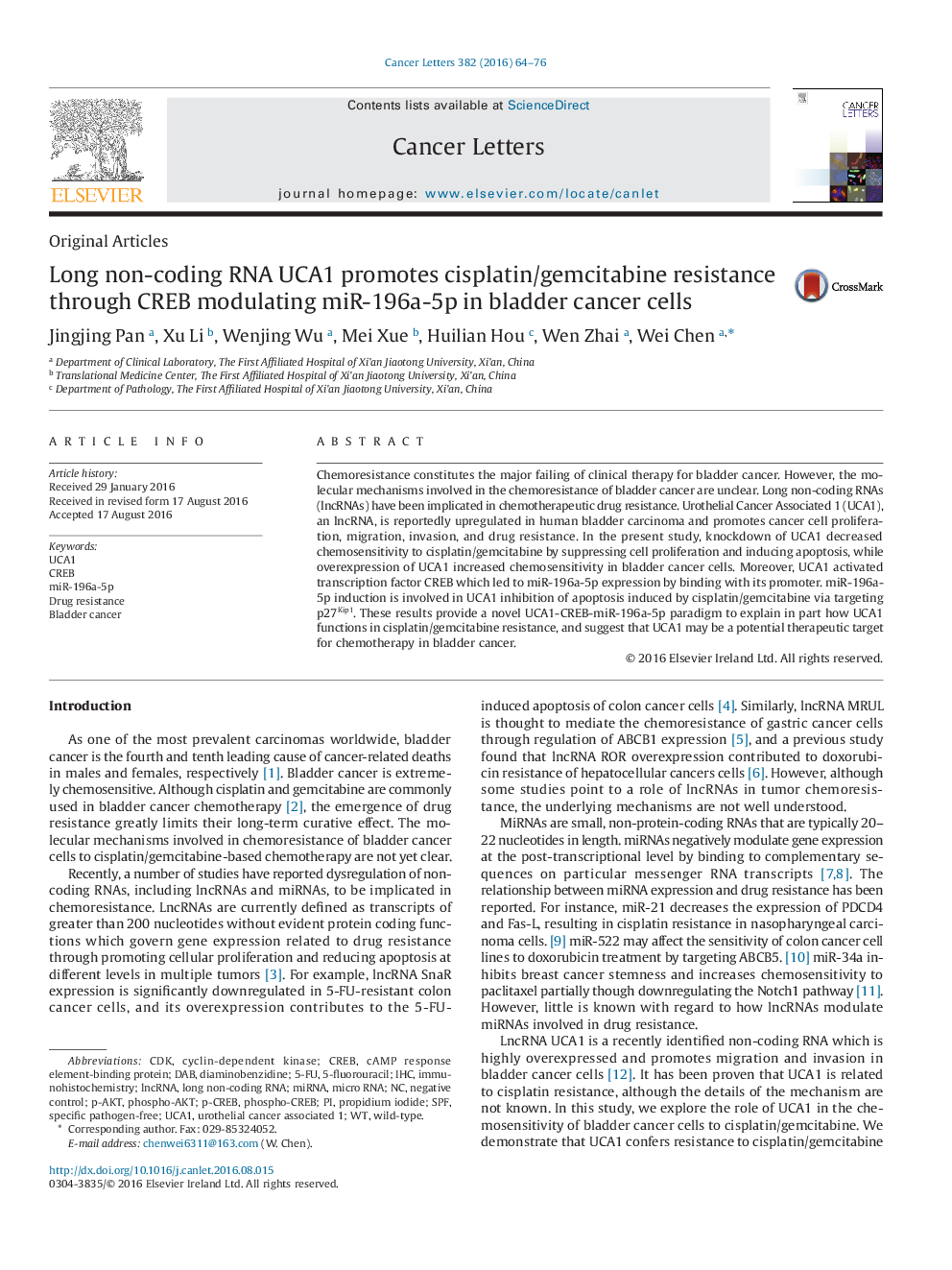| کد مقاله | کد نشریه | سال انتشار | مقاله انگلیسی | نسخه تمام متن |
|---|---|---|---|---|
| 6481825 | 1401493 | 2016 | 13 صفحه PDF | دانلود رایگان |

- UCA1 contributes to cisplatin/gemcitabine resistance to bladder cancer cells.
- UCA1 upregulates miR-196a-5p through transcription factor CREB.
- miR-196a-5p is involved in UCA1-mediated cisplatin/gemcitabine resistance via targeting p27Kip1.
- Decreasing UCA1 can enhance the chemosensitivity of bladder cancer cells to cisplatin/gemcitabine in vivo.
Chemoresistance constitutes the major failing of clinical therapy for bladder cancer. However, the molecular mechanisms involved in the chemoresistance of bladder cancer are unclear. Long non-coding RNAs (lncRNAs) have been implicated in chemotherapeutic drug resistance. Urothelial Cancer Associated 1 (UCA1), an lncRNA, is reportedly upregulated in human bladder carcinoma and promotes cancer cell proliferation, migration, invasion, and drug resistance. In the present study, knockdown of UCA1 decreased chemosensitivity to cisplatin/gemcitabine by suppressing cell proliferation and inducing apoptosis, while overexpression of UCA1 increased chemosensitivity in bladder cancer cells. Moreover, UCA1 activated transcription factor CREB which led to miR-196a-5p expression by binding with its promoter. miR-196a-5p induction is involved in UCA1 inhibition of apoptosis induced by cisplatin/gemcitabine via targeting p27Kip1. These results provide a novel UCA1-CREB-miR-196a-5p paradigm to explain in part how UCA1 functions in cisplatin/gemcitabine resistance, and suggest that UCA1 may be a potential therapeutic target for chemotherapy in bladder cancer.
Journal: Cancer Letters - Volume 382, Issue 1, 1 November 2016, Pages 64-76